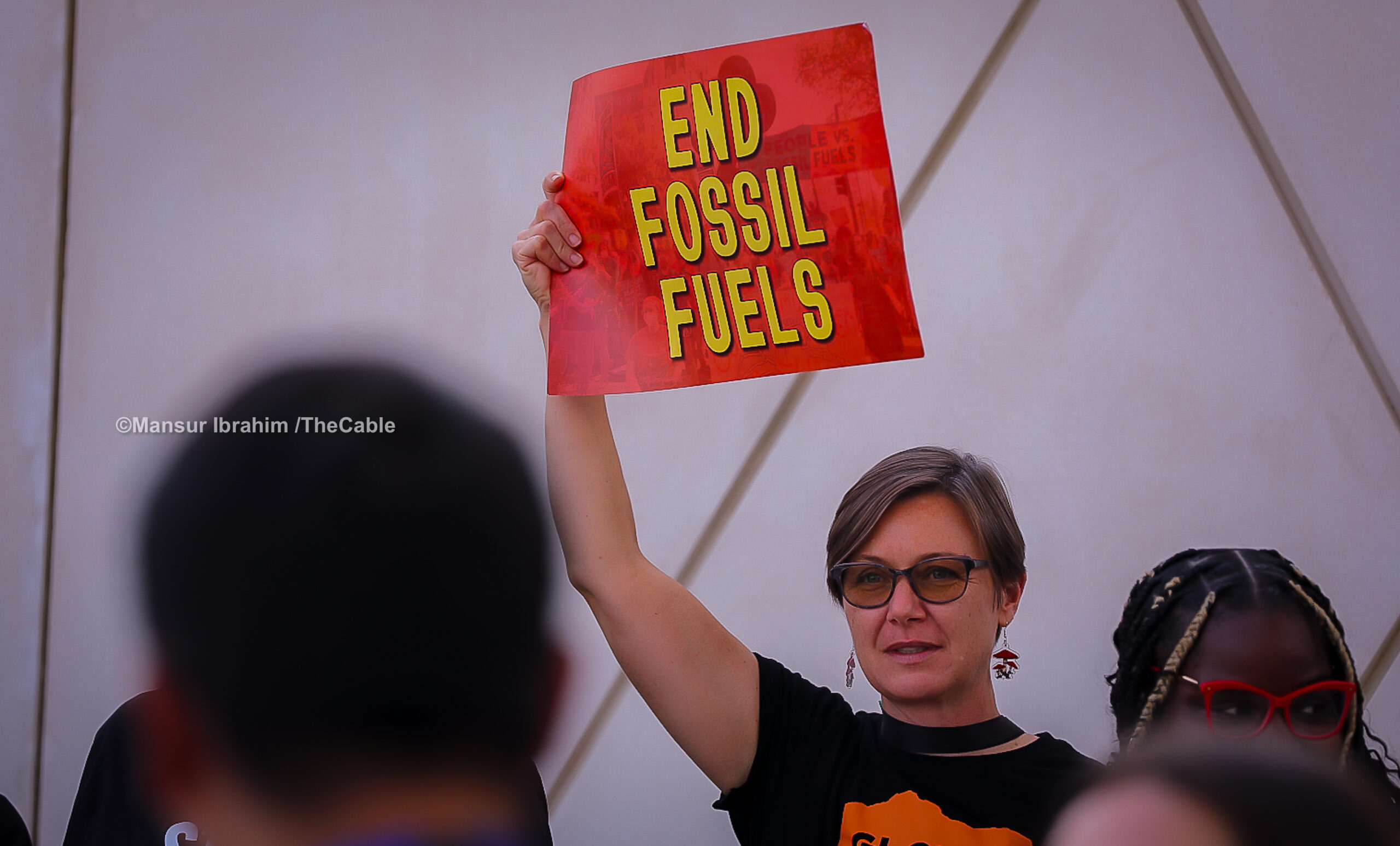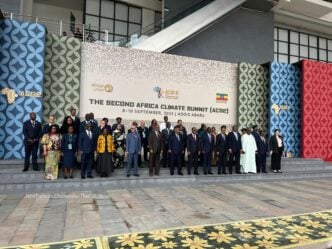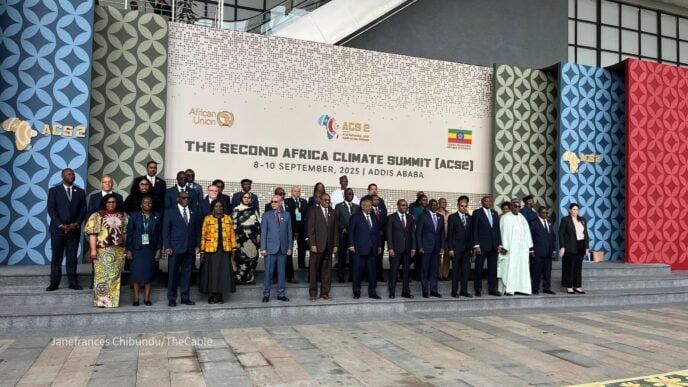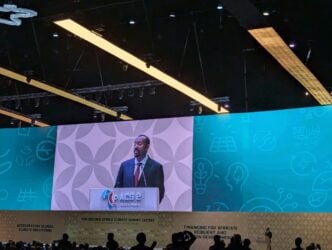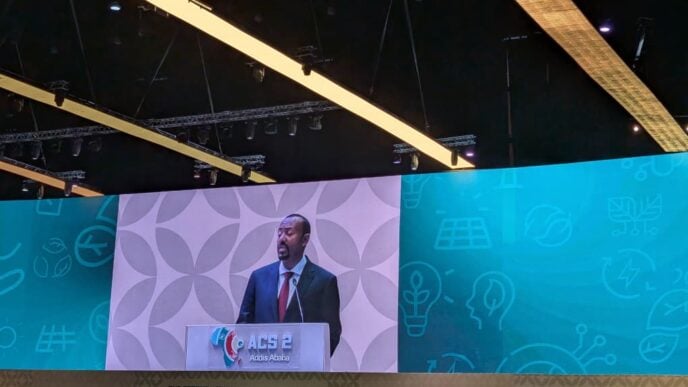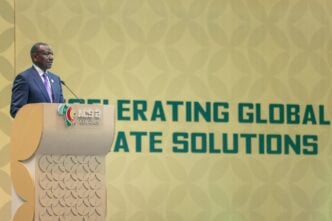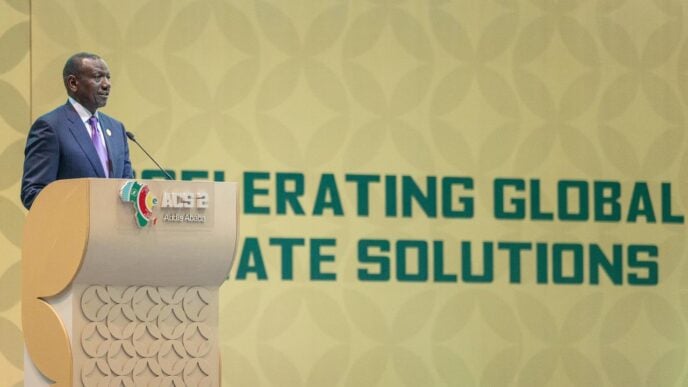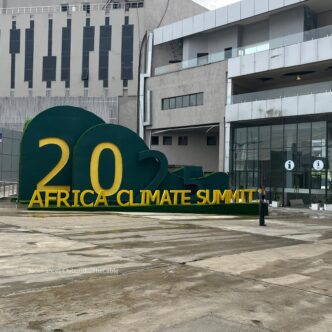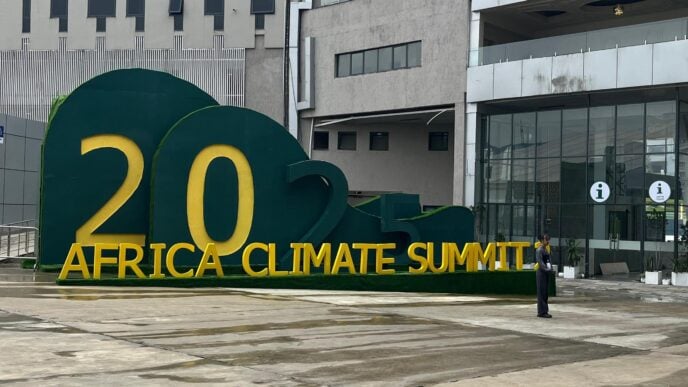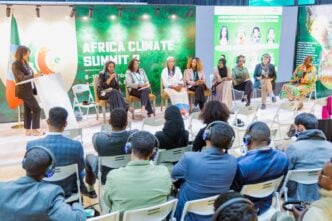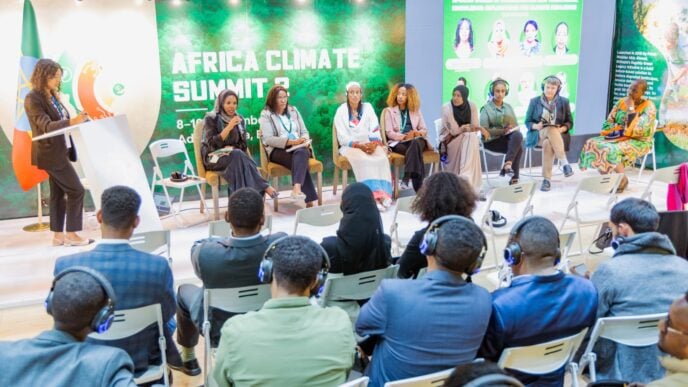A delegate protesting against fossil fuel at CO28
African leaders, UN officials, and world presidents will convene in Addis Ababa, Ethiopia from September 8–10 for the second Africa Climate Summit (ACS2).
The summit themed ‘Accelerating Global Climate Solutions: Financing for Africa’s Resilient and Green Development’ is expected to showcase Africa-led climate solutions and unlock climate finance.
Seyoum Mekonnen, Ethiopia’s minister of state for planning and development, described the summit as “Africa’s moment to lead”.
Mekonnen said Ethiopia remains committed to green growth and climate action, highlighting the Green Legacy Initiative, which has planted over 40 billion trees in six years and boosted forest cover from 17.2 percent in 2019 to 23.6 percent in 2023.
Advertisement
“Ethiopia’s investment in renewable energy has strengthened regional integration through interconnections with Kenya, Djibouti, Sudan, and Tanzania. The country is also emerging as a continental leader in e-mobility,” Mekonnen said.
ACS2 takes place ahead of COP30 in Belém, Brazil, amid Africa’s rising debt, energy shortages, and climate-exacerbated hunger.
‘AFRICAN LEADERS MUST SHUN FALSE CLIMATE SOLUTIONS’
Advertisement
Civil society organisations (CSOs) have sent a stern message to African leaders, demanding urgent action on climate justice, fossil fuel phase-out, and sustainable development.
Nnimmo Bassey, executive director of Health of Mother Earth Foundation (HOMEF), said the climate crisis is worsening because of weak global mechanisms.
He added that the summit must build on the recent International Court of Justice advisory opinion that underscores states’ obligation to act.
“The climate crisis continues to escalate due to inaction promoted by voluntary emissions reduction mechanisms such as the NDCs and various false solutions,” Bassey said.
Advertisement
“We call for real climate action, drastic emissions reduction, the eradication of neocolonial land grabs, the respect of indigenous wisdom, the payment of climate debt, and an end to ecocide.”
Seble Samuel, head of Africa campaigns at the Fossil Fuel Non-Proliferation Treaty Initiative, said the summit offers a chance to break from “the sacrifice zone model” that has turned Africa into “the stomping ground and gas station for foreign corporations.”
She called on African governments to support a fossil fuel non-proliferation treaty to equitably phase out fossil fuels and accelerate renewable energy access.
Mohamed Adow, executive director of Power Shift Africa, said the summit must renew Africa’s climate and development vision.
Advertisement
“It must address Africa’s major challenges, notably hunger, poverty, conflict, debt, energy poverty, and infrastructure deficiencies,” Adow said.
Patricia Bekoe, executive director of Odeibea Foundation, Ghana, urged leaders to deliver outcomes that include women and youth as “equal partners driving solutions”, not just as beneficiaries.
Advertisement
Irene Mosha of HakiRasilimali, Tanzania, said Africa’s “lesser contribution to global emissions” must translate into stronger negotiating power for climate finance and just transition.
Smith Nwokocha, coordinator of Quest for Growth and Development Foundation, Nigeria, emphasised that the summit must move beyond rhetoric.
Advertisement
“For us, success means commitments that empower youth, advance renewable energy transitions, and ensure accountability in how resources are deployed,” he said.
‘CLIMATE FINANCE MUST NOT DROWN AFRICA IN DEBT’
Advertisement
The CSOs added that climate action should not come at the cost of escalating debt, noting that loans disguised as climate finance could burden communities while failing to deliver real solutions.
Adrian Chikowore, Pan Africa advocacy advisor at Christian Aid, said climate action should not be funded with loans disguised as finance.
“Africa cannot tackle the climate crisis while drowning in debt. Climate finance must serve people and the planet, not profits,” he said.
Thato Gabaitse of We The World, Botswana, criticised the limited participation of African nationals in the summit process, but said youth and women remain committed to pushing gender-responsive and climate-resilient solutions.
Bhekumuzi Dean Bhebhe, senior advisor at Power Shift Africa, said ACS2 must establish a financing model “rooted in dignity and distributive justice”.
“Africa’s path to energy sovereignty and a robust green industrialisation framework will be determined not only by how much capital it mobilises, but by the quality, purpose, and governance of that capital,” he said.
The CSOs express hope that the summit will adopt their recommendations to advance Africa’s green growth agenda.
